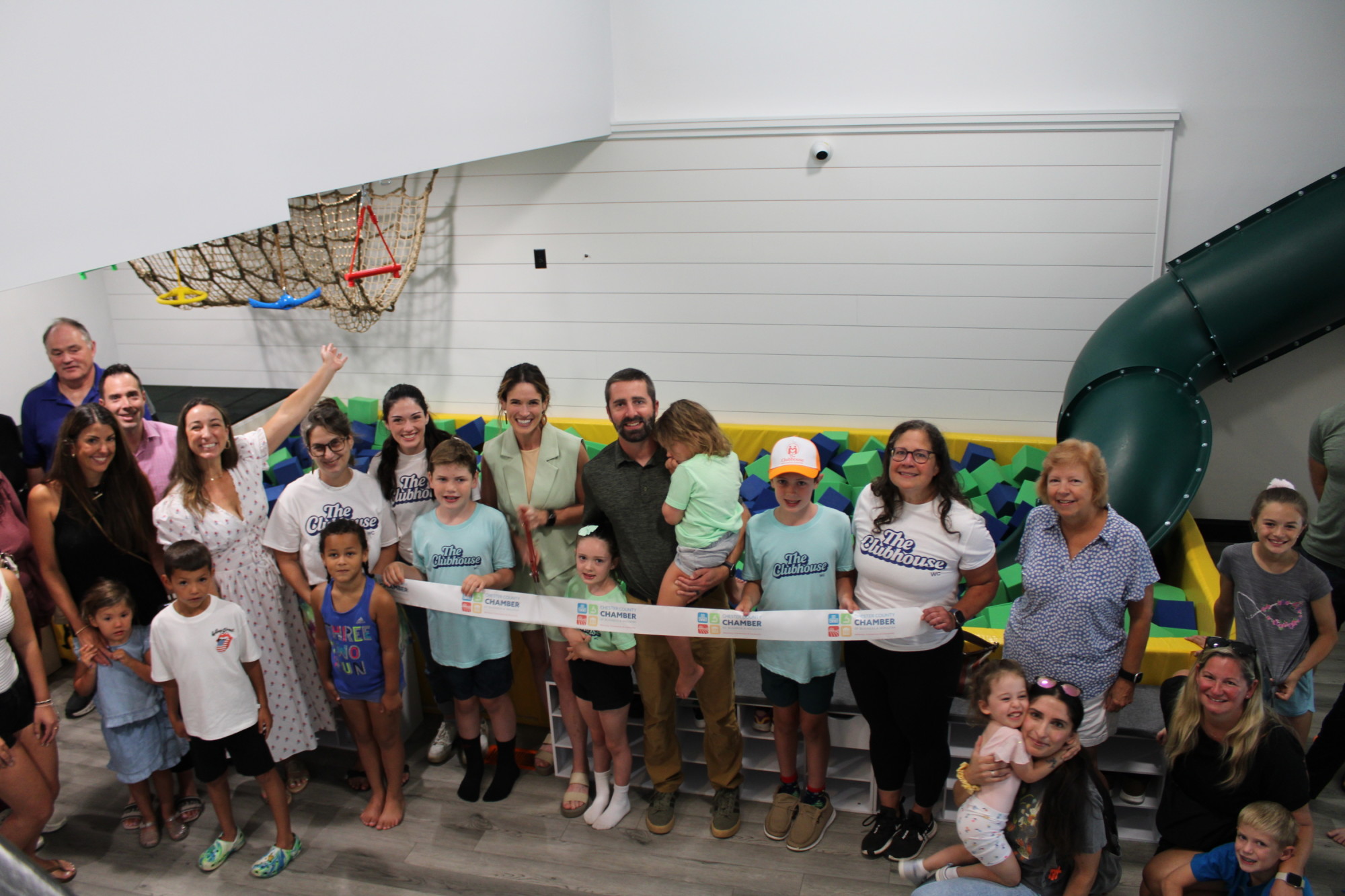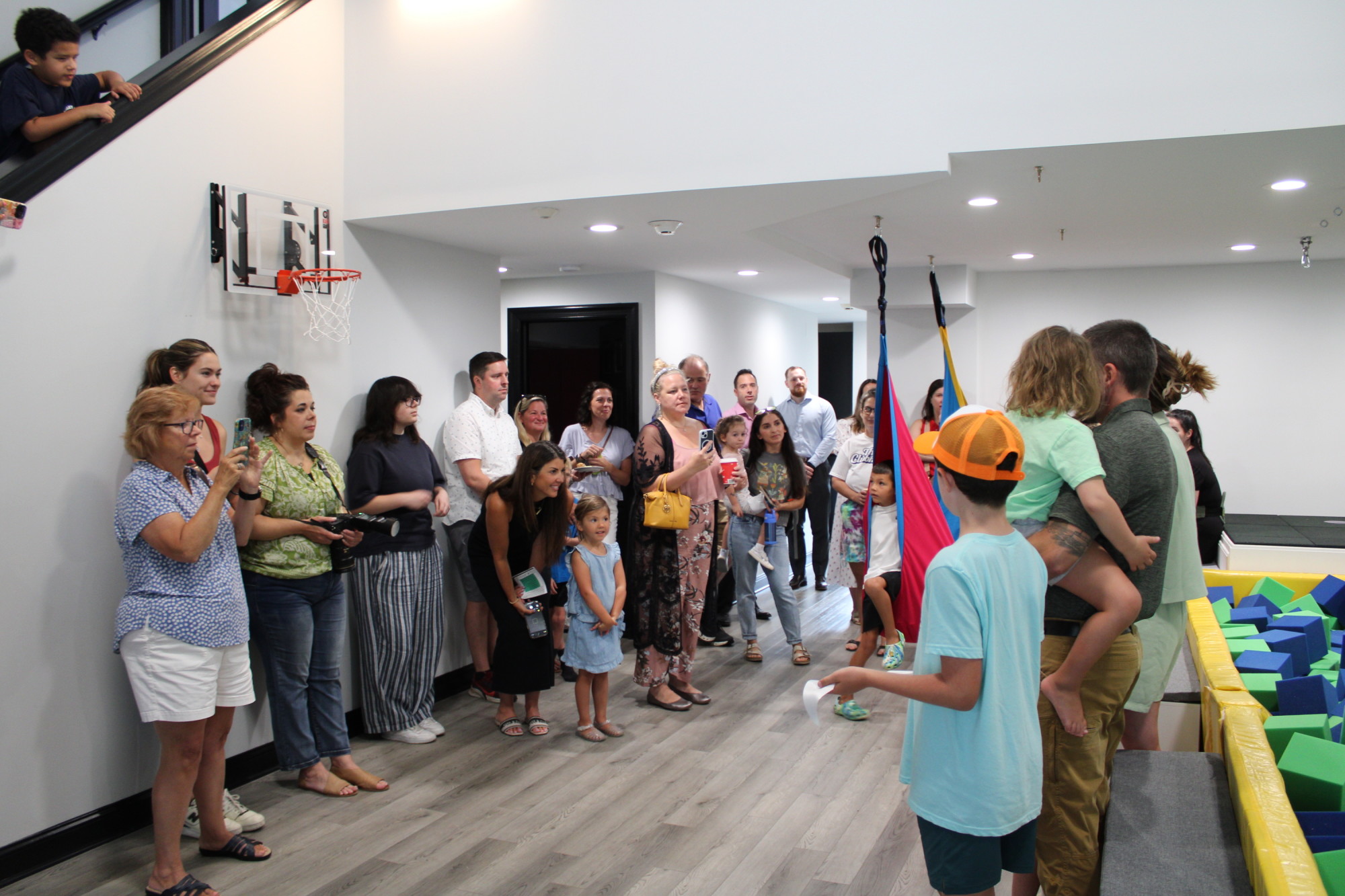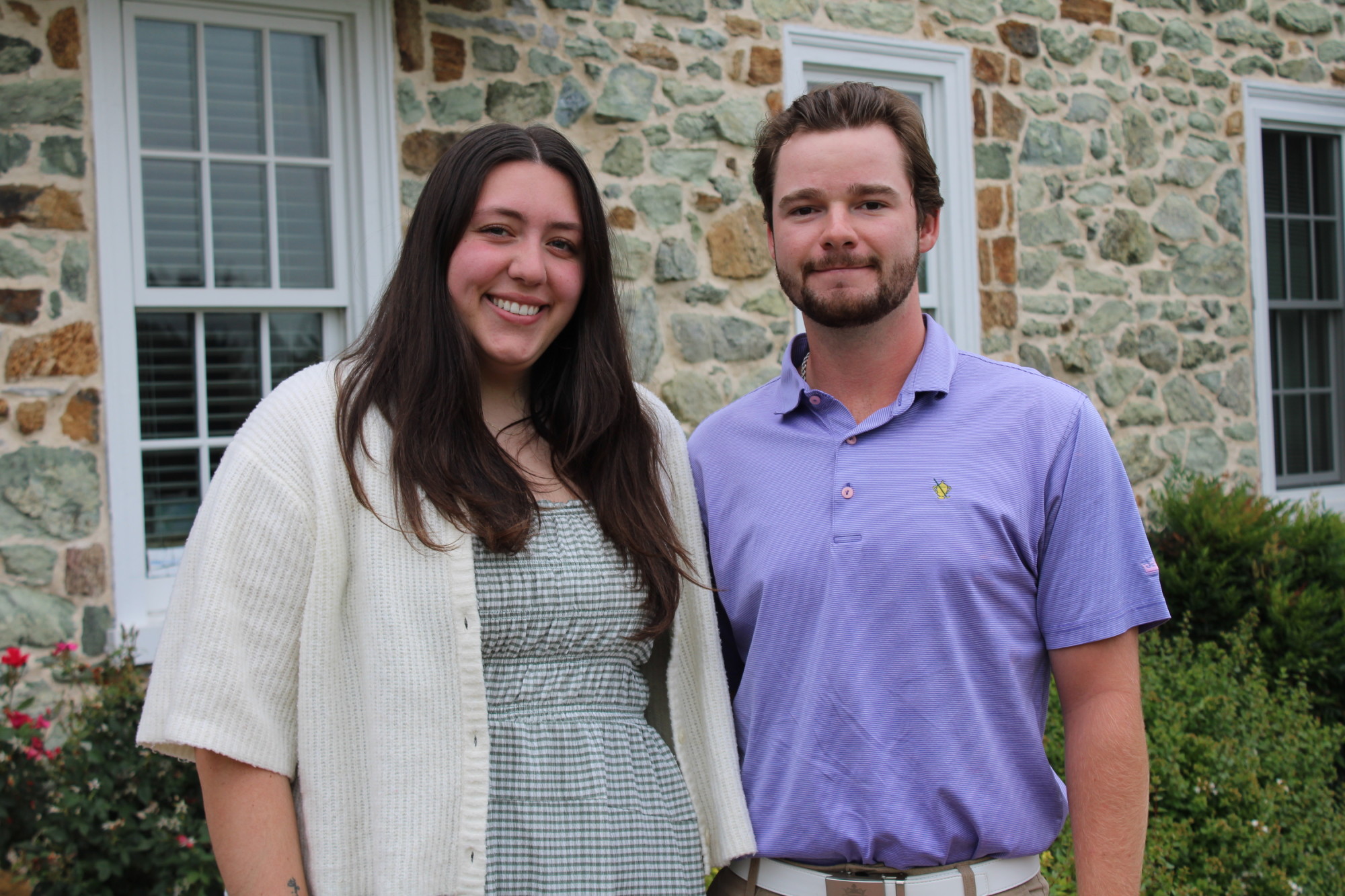|
|
Chamber News |
|
|
|
Special Ribbon Cutting Ceremony to Welcome The Clubhouse Wellness Center |
|
|
|
|
On Tuesday morning, CCCBI joined The Clubhouse Wellness Center for their grand opening!
Nicole and Alex Weirich imagined something more than a traditional program for kids, that's why they've built a warm, welcoming space where children could learn, grow, and build meaningful relationships through play and guided experiences at The Clubhouse!
The vision started there—but it didn’t stop. Everyone deserves a space to connect, grow, and feel supported. While their programs are built around the unique social, emotional, and developmental needs of infants through teens, they also know that parents and caregivers need support too. That’s why The Clubhouse creates opportunities not just for children, but for entire families.
A small crowd of friends, family and neighbors in the community came out to celebrate the beginning of the Weirich family's dream. CCCBI was thrilled to play a small role in welcoming them to the Chamber and the community in which the Clubhouse will thrive. |
|
|
|
“I’ve known Clubhouse owner Nicole for twenty years, so this ribbon-cutting was a special one for me as president of CCCBI," said Laura Manion. "What Nicole and her family have built for their fellow Chester County families is incredible. I look forward to seeing the clubhouse packed with children, parents, and seniors from our Chamber and beyond for many years to come!"
The Clubhouse isn’t just another activity. |
|
|
|
|
Good Luck to our Interns! |
|
|
|
|
Please join us in congratulating our two interns, Ella and Coleman as they leave the Chamber and begin their professional journeys in the Chester County workforce!
We're wishing them the best of luck and look forward to seeing them at future events with their Member employers! |
|
|
|
Legislative Update |
|
|
|
Pennsylvania State Budget Update |
|
|
|
This past week in Harrisburg showcased the legislative "ping-pong" between the Pennsylvania House and Senate, with both sides trying to push their own priorities while working to reach a state budget agreement. Indeed, Pennsylvania’s budget has been delayed for over 40 days past the June 30 state constitutional deadline. On Monday, August 11, the House approved HB1788, a measure that funds public transit and infrastructure. Sponsored by Representative Sean Dougherty (D-Phila), the bill aims to increase the allocation from the Public Transportation Trust Fund from the current 4.4% to 6.15% of the Sales and Use Tax. It also seeks to authorize $325 million in bonds specifically allocated for PennDOT road and bridge projects. In an effort to garner wider support, the bill also included oversight and safety reforms primarily aimed at SEPTA and the Pittsburgh Regional Transit. While several GOP House members did vote for the legislation, Senate Republicans were quick to label the bill as "political theater," and depict it as a "doomed bill" with little chance of passing the Senate. The Senate returned to Harrisburg the day after the House left and advanced a separate version of mass transit funding (HB257), progressing through similar stages of debate, amendment, and final approval along party lines. The revised legislation allocates money mainly from the Public Transportation Trust Fund and establishes guidelines with goals to enhance safety and accountability. In addition, the Senate passed SB160, the General Appropriation Act for 2025, sponsored by Senator Scott Martin (R-Lancaster). SB160 was favorably reported from the Appropriations Committee, went through the re-reporting process, and successfully moved forward after thorough discussion, receiving third consideration before final passage also along party lines. While not calling their members back for a full Session day, the House still convened House Rules and Appropriations Committee meetings on Wednesday, one day after the Senate left Harrisburg, to vote down the Senate counterproposals. It is very rare, if not unprecedented, for a legislative committee to convene a meeting and vote against legislation, so this clearly indicates that neither the state budget nor a mass transit funding compromise package will likely be agreed to anytime soon. Thus, the stalemate in Pennsylvania continues. |
|
|
|
Member Spotlight |
|
|
|
Everest Discovery LLC |
|
|
|
Led by husband-and-wife team Tom and Sue Pellegrino, Everest Discovery is an eDiscovery and litigation support company that provides high-quality and cost-effective solutions to law firms and corporate clients nationwide. |
|
|
When lawsuits or investigations arise, we help legal teams find and review relevant digital information by collecting emails, documents, and data from phones and computers, then organizing it so our clients can quickly review what matters most for their case. We also support companies across industries in responding to a data breach or developing a plan to prepare them should a cyber breach occur.
We use state-of-the-art technology and expert support to save our clients time, money, and stress. Think of us as the behind-the-scenes team that makes protecting and reviewing confidential information straightforward and manageable. |
|
|
After acquiring Everest Discovery in 2017, Tom and Sue assembled a team and moved Everest’s corporate headquarters from North Jersey to Philadelphia to expand its market reach. Revenue increased by 14% in the first year alone, with average revenue growth of 42% since taking it over. They also expanded Everest’s footprint from a regional business to a national one, with clients even in South America. For the past two years, Everest has won The Legal Intelligencer’s Best of award for end-to-end eDiscovery. |
|
As a family-owned business, Everest Discovery prioritizes a close-knit, respectful, and supportive corporate culture. Despite having a remote team with folks across the country, we actively foster transparency, accessibility, and open dialogue with one another, including our leadership team. Everest is also proudly certified as a Women’s Business Enterprise (WBE) and a Women-Owned Small Business (WOSB) by the WBENC. |
|
Member Events |
|
|
|
We’d love to hear from and highlight your business! We are seeking member spotlight stories to include in our weekly newsletter! Email your news to abby@chescochamber.org |
|
























